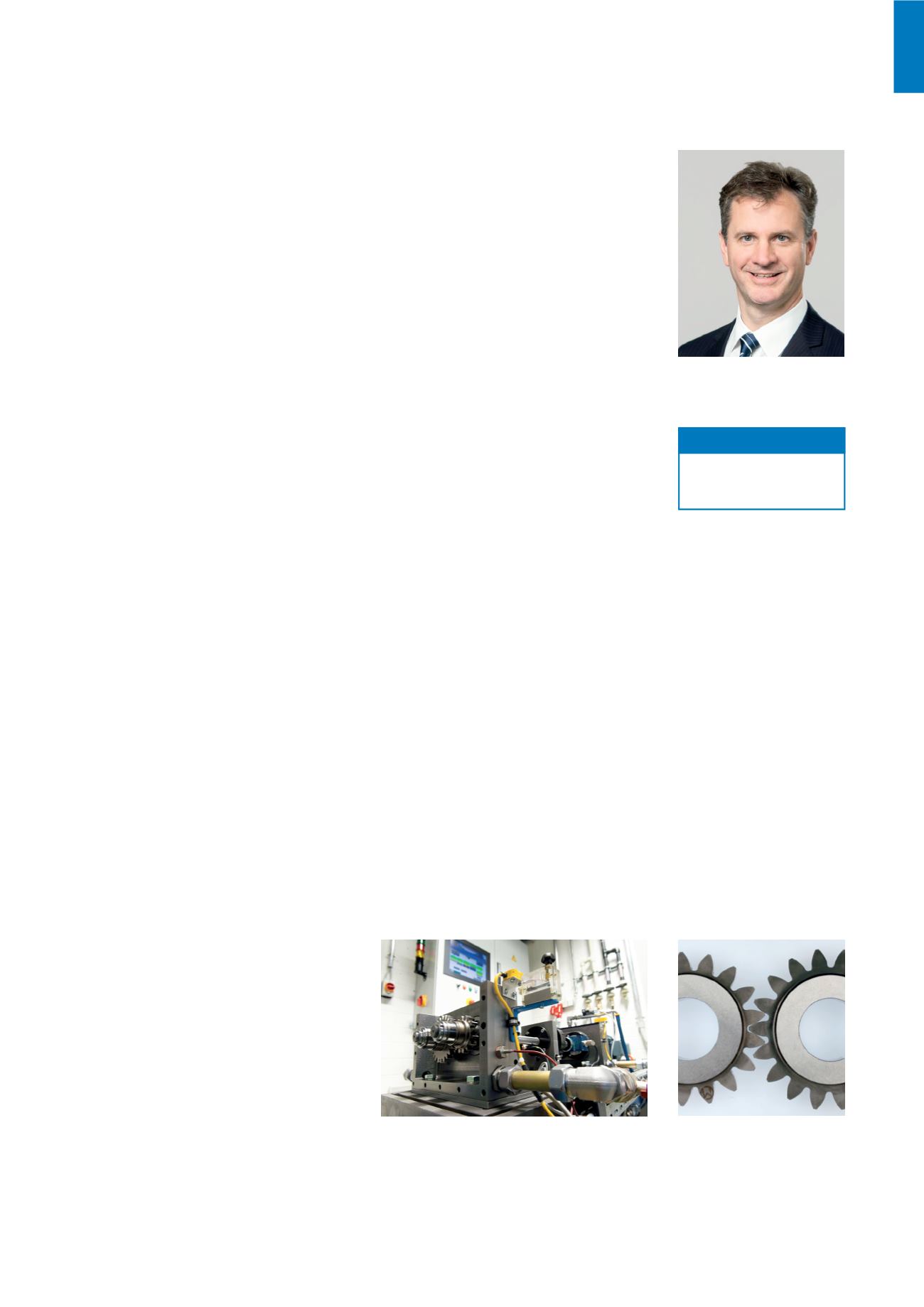

Machine Elements
257
Machine Elements
Calculation, simulation and experimental analysis of gears, synchronizers, clutches and rolling element bearings
n
The Institute of Machine Elements (FZG) focuses on the development
of methods and tools for reliable determination of fatigue life, efficiency,
friction and vibration characteristics of gears and transmission elements.
Prof. Dr.-Ing.
Karsten Stahl
Cylindrical Gears
The Institute of Machine Elements, also
known as ‘Gear Research Centre’ (FZG),
is an established internationally-renowned
research centre for gears and transmis-
sions. The development of methods and
tools for reliable determination of fatigue
life, efficiency and vibration characteristics
of gears and transmission elements is
the primary focus of research activities at
FZG. FZG has state-of-the-art facilities for
the examination and testing of different
machine elements – such as gears, syn-
chronizers, clutches and rolling element
bearings.
The research projects of FZG range
from theory-oriented basic research to
application-related work. The projects
are financed and supported by different
organisations. A large number of these
projects are initiated, financed and
supervised by the Forschungsvereinigung
Antriebstechnik e.V. (FVA), usually together
with the Arbeitsgemeinschaft industrieller
Forschungsvereinigungen (AiF). Other
important research partners include the
Deutsche Forschungsgemeinschaft (DFG),
the Bayerische Forschungsstiftung, the
Deutsche Wissenschaftliche Gesellschaft
für Erdöl, Erdgas und Kohle e.V. (DGMK),
the FVV or the Stahlforschung. In addition,
many application-oriented projects are
requested and commissioned directly by
industry.
Our lecture series and practical exercises
in machine elements represent the basic
training in mechanical engineering. In the
lectures, students learn to select machines
and machine elements correctly, to design
them and to calculate their properties. This
knowledge is then practically applied in
practice in design and calculation exam-
ples within the lecture-related exercises.
A very important aspect of this is that
the students learn to communicate using
‘engineers’ language’ – with sketches and
drawings. Practical relevance and topicality
are also an important criteria for lectures
in special subjects. Last but not least,
this relevance is ensured with lectures by
executives from industry.
www.fzg.mw.tum.de fzg@fzg.mw.tum.dePhone +49.89.289.15807
Contact
Back-to-back gear test rig
(a=91.5mm)
Research Components
The focus of research activities is the experimental and theoretical examination of
gear components and drive systems.
Cylindrical gears are the most common
types of transmission. The fatigue life
of cylindrical gears is limited by pitting,
micro-pitting, scuffing, wear, tooth root
breakage or tooth flank breakage. The
basis for the experimental examination of
such gear damage is the standard FZG
back-to-back gear test rig, which was
developed by FZG and is used all over the
world.
The types of damage described, as well as
material, lubricant and efficiency examina-
tions for external and internal gearings, can
thereby be carried out very efficiently. In
addition to sufficient load-carrying capacity
and good noise characteristics, research
is increasingly focusing on the efficient
performance of gears.


















